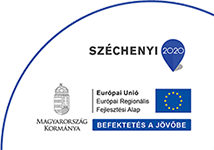The volume of essays entitled More modoque. Die Wurzeln der europäischen Kultur und deren Rezeption im Orient und Okzident has been published by the Research Centre for the Humanities of the Hungarian Academy of Sciences with the contribution of the Research Centre for Ancient Studies (MTA Ókortudományi Kutatócsoport) in the honour of the classical philologist and prominent scholar of orientalism, Prof. Miklós Maróth on his 70th birthday. The papers have been selected and edited by Pál Fodor, Gyula Mayer, Martina Monostori, Kornél Szovák and László Takács.
A kötet adatai:
Formátum: B/5
Kötés: keménytáblás
Megjelenés éve: 2013
Terjedelem: 567 oldal
Inhalt
Tabula gratulatoria
Zum Geleit
I. Griechenland in der Antike und Byzanz
Zsigmond Ritoók
Invokationen. Ein Abriss
Zsolt Adorjáni
Lyric and Prophecy: The Poetics of the Homeric Hymn to Hermes
Pat Easterling
Authority without a Name: A Note on Traditional Wisdom in Greek Tragedy
László Horváth
The Importance of Delivery: The Background of an Illustrative Anecdote
Marwan R ashed
Méléagre de Gadara: Quatre poèmes autobiographiques mal compris
(Anth. gr. VII 416, 417, 418, 419)
Tamás Mészáros
Byzantine Metrical Scholia on Thucydides
Elvira Pataki
Platon le poisson, ou Platon la cigale. Notes sur des images métapoétiques dans les
Silloi de Timon de Phlionte
Péter Lautner
Accounting for the Lack. Why Is There No Discussion of Plato’s Theory of Sense-perception in the Neoplatonic Commentaries on Aristotle’ De anima?
Tibor Szepessy
Heliodoros and the Maccabees
Christian Gastgeber
Dioskuridiana. Miscellanea zum Wiener Dioskurides Codex Med. gr. 1
Zoltán Farkas
An Interpretation of Michael Psellus’ or. theol. 19
II. Rom bis zum Ende der Antike
Gregory Nagy
Virgil's Verse invitus, regina... and Its Poetic Antecedents
László Takács
Bemerkungen zur Vergil-Kritik des L. Annaeus Cornutus
László Havas
Le portrait du peuple romain, dessiné par Florus d’après la tradition littéraire sur Alexandre le Grand
Zsolt Visy
A New Military Diploma from Pannonia Inferior
Péter Kovács
Constantine, the Sarmatians, the Goths and Pannonia
III. Der Orient und seine Verknüpfung mit dem Westen
Sebastian Brock
The Letter of the Emperor Julian to Basil of Caesarea, and Basil’s Reply, in a Syriac Translation
Erica C. D. Hunter
Syr HT 140: Commemorating Mar Cyriacus and Julitta
Nicholas Sims-Williams
A Sogdian Fragment of the Martyrdom of Cyriacus and Julitta
Zoltán Szombathy
Between Myth and Genealogy: A Lineage History in Arabic from Ghana
Orsolya Varsányi
The Terminology of Body in Ninth-century Christian Apology
Gotthard Strohmaier
Koranische Kosmologie und das Zusammentreffen der beiden Meere
Abdessamad Belhaj
Crossroads of Reflection: Avicenna and ‘Abd al-Jabbār on the Widely-
transmitted Propositions
Carmela Baffioni
The Terms Ibdā‘, al-Mubda‘ al-Awwal, and Mubda‘āt in the Rasā’il Ikhwān al-Ñafā’
Dominique Urvoy
Pensée spéculative et choix de langue dans l’aire moyen-orientale et méditerranéenne médiévale
Marie-ThérÈse Urvoy
La perception ambiguë du monde non islamique par un lettré musulman du XIIe siècle
Charles E. Butterworth
How to Read Alfarabi
Anna Flóra Kis
Theory of Research: al-Farabi’s Commentary on Aristotle’s Topics
Jules Janssens
Ibn Sīnā on Substance in Chapter Two of the Ma‘qūlāt (Categories) of the Shifā’
István Lánczky
Avicenna on the Afterlife: An Attempt to Resolve the Problem of the Bodily Dispositions
Balázs Major
“Anklīs” – A Possible Trace of European Presence in the Medieval Syrian Vocabulary
António Dias Farinha
Le commerce de Berbérie et la premiere banque au Portugal (1465)
Pál Fodor
Hungary between East and West: The Ottoman Turkish Legacy
György Hazai
Zur Geschichte einer klassisch-arabischen Literaturgattung in der altosmanischen Literatur
Iván Szántó
Warrior under the Glaze: A Ceramic Panel from Ottoman Aleppo
Bert G. Fragner
Gelehrtes „networking“ in Zeiten des Kalten Krieges: Persische Diplomatik als ein grenzüberschreitender Forschungsgegenstand
IV. Renaissance und Humanismus
Rémi Brague
La transmission de l’héritage antique: Le rapport à la tradition
Hans Daiber
Ramon Llull as a Humanist
Josef Puig Montada
Vicente Galarza und seine Vorlesungen über altklassische Philosophie
Kornél Szovák
Beweisführung in politischen Briefen des 12–13. Jahrhunderts aus Ungarn
Daniel Škoviera
De contemptu mundi auf zweierlei Weise: Erasmus von Rotterdam und Valentinus Ecchius
C. Edmund Bosworth
An Elizabethan English Traveller in Eastern Europe 1593: Fynes Moryson and His Itinerary
Nicol Sipeki
Syntaxis ornata or System of Language Virtues in a Stylistic and Rhetorical Tradition in Jesuit Education
Péter Tusor
Why did Pázmány of the Jesuit Order Become a Somascan?
Bibliographie der Werken von Miklós Maróth (Ádám Bujdosó)
Register der alten Eigennamen



